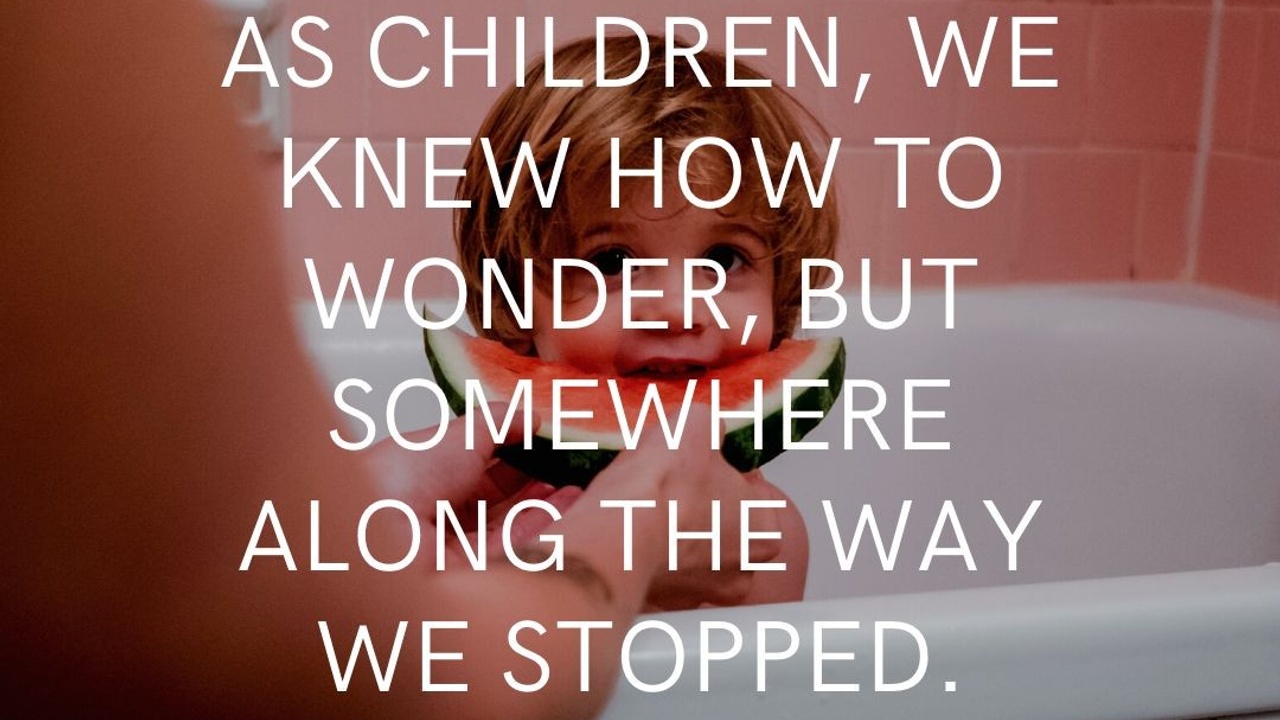
Imagine you go camping with your friends in a forest far from the city. The air there is clear and cold. Some people have told you that there is a waterfall nearby. You decide to go exploring with your friends and realize midway that you forgot your cell phone. For hours you haven’t felt the need to look at it. You feel good to be connecting with nature and people without distractions. After your hike, night falls. You put on a warm jacket and head out from your tent. Your friends started a fire and everyone's gathering around it to make smores and roast marshmallows. When everyone is already sitting around the fire, there is a sudden silence. Someone, you are not sure who, starts reciting a poem. When the speaker reaches the end, a long silence follows. The opening lines of the poem still reverberate in your head:
Sometimes as an antidote
To fear of death,
I eat the stars.
You don’t know how many minutes or hours you spent hearing the poem. It felt like time slowed down while the voice reciting it spoke about stars, bones and wings. The fireflies in the forest appear to your eyes as stars. You were completely raptured by the poem. An infinite number of questions fill your head. But the fire is starting to die. Suddenly everyone is saying good night. You go to sleep feeling as if you just had woken up from a dream.
What we feel around that fire is one of the oldest and most primordial human instincts in our history as a species. When someone tells a captivating story, whether it is a poem around a fire, a mother to her children before sleeping, or grandma remembering her youth, something primordial and primitive awakes in us. Through stories, we live different lives and explore different worlds which would be otherwise inaccessible for us.
The world of art provides the perfect platform to start asking questions and create meaningful conversations. Art is perhaps the best and most effective vehicle to tell stories. Through art, we learn to see the other as a universe of stories that are worth understanding. And to understand, we start asking questions. The more questions, the better.
Poetry, literature, painting, sculpture, dance, music, and any other form of artistic expression is a product of our instinct for stories: we create narratives that captivate our mind and awake questions, questions that lead us to engage in conversation with others and help us understand them better and improve our interactions with them. Ultimately, stories improve society. But the distractions of our modern world make us often forget that stories are the main way in which we understand ourselves and the world around us. Bombarded by our smartphones and televisions with ads, miracle products, self-help books, and quick tips to be successful, we feel the need for answers before knowing the right questions to ask. We need stories to survive, but we don’t know where to find them.
At LUAN we have developed a special exhibition made up of stories that will free your imagination and awake questions in you. If you are intrigued about it, send us an email at [email protected]. Surround yourself with art, and even better, express your own stories through artistic media. You'll see how you awake that ancient human instinct to tell and hear stories that makes our lives rich and meaningful.



To fear of death,
I eat the stars.
Those nights, lying on my back,
I suck them from the quenching dark
Til they are all, all inside me,
Pepper hot and sharp.
Sometimes, instead, I stir myself
Into a universe still young,
Still warm as blood:
No outer space, just space,
The light of all the not yet stars
Drifting like a bright mist,
And all of us, and everything
Already there
But unconstrained by form.
And sometime it’s enough
To lie down here on earth
Beside our long ancestral bones:
To walk across the cobble fields
Of our discarded skulls,
Each like a treasure, like a chrysalis,
Thinking: whatever left these husks
Flew off on bright wings.


